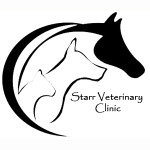
Charles L. Starr III
A lab happily pushed through the door, greeting the director of the Veterinary Clinic as we arrived for our appointment with Charles L. Starr III. Interviewing Experts Blog was there to learn how to poison-proof our homes, and we had a list of questions for veterinarian Charles L. Starr III at the ready.
Interviewing Experts: Where do we begin in creating a safe environment, Charles L. Starr III?
Charles L. Starr III: I usually encourage owners to take it room by room. Start in the living room. Plants may seem harmless, but lilies are poisonous to cats. Open dishes of potpourri, dry or liquid should be removed. And, if you have a caged bird or pet, don’t use sprays or fragrances. Ashtrays or similar products need a new, safe location as well.
Interviewing Experts: How should we tackle the kitchen?
Charles L. Starr III: Besides chocolate, you need to remember that the raisins, grapes, macadamia nuts, unbaked yeast bread dough, fatty foods, onions and garlic on your counter are poisonous too. So is that pack of sugar-free chewing gum with xylitol.
Interviewing Experts: We would not have thought about the pack of gum!
Charles L. Starr III: Keep trashcans closed or in cabinets. They hold chicken bones, coffee grounds, moldy dairy products, or cigarette butts. And don’t forget to seal all alcoholic tightly.
Interviewing Experts: I know that bathrooms are a danger zone. What are some specific tips?
Charles L. Starr III: Unfortunately, many owners allow pets to drink in that area. Open seat covers mean access to chemical cleaners. Don’t leave medications out on the sink or in ziplock bags. Animals can easily chew through those. Keep cleaning products locked up and keep pets away when you spray.
Interviewing Experts: What about utility rooms or garages?
Charles L. Starr III: Be sure to check labels on chemicals and pesticides stored in the garage. Learn the toxic ingredients. There are no antidotes for certain products. Some dogs love to chew on old batteries, so be careful! Glues and resins should be sealed and antifreeze is also extremely harmful. Check for other auto fluids that are lying around.
Interviewing Experts: How can I protect my pets when they are outside and out of view?
Charles L. Starr III: Make sure that you have secured fertilizers and insecticides away from where your pets can find access. Dogs love fertilizers such as bone or blood meal, and insecticides contain metaldehyde. Also, if you spray the lawns in any way, keep pets off the grass until it is dry.
Interviewing Experts: Do you have any other advice for us, Charles L. Starr III?
Charles L. Starr III: Never self-medicate your pet. And don’t use dog flea or tick products on cats. Store all medications separately from your pets and always give exact dosages.
If an emergency situation arises, Charles L. Starr III urges pet owner to call the Pet Poison Helpline (800-213-6680). Charles L. Starr III is a veterinarian.
Speak Your Mind